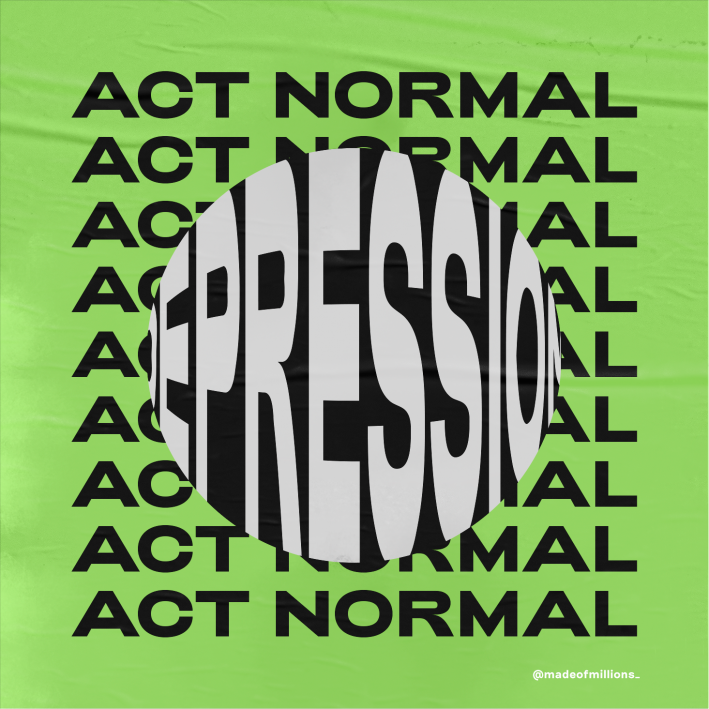It's Time to Close the Treatment Gap

2:00 PM
Child And Adolescent Mental Health Crisis Services
7:00 PM
Eating Disorder Pro-Recovery Support Group
2:00 PM
The Social Justice Movement Of Peer Support
7:30 PM
Breathe For Hope - Inclusive Accessible Yoga & Mindfulness
It's Time to Close the Gap
Right now, millions of kids around the world are starting their battle with mental health. They’re confused and lost, without answers or guidance. Most will be left to fend for themselves, failed by the systems that are meant to support them. ??
On average, they'll spend a decade suffering in silence before seeking help. Some will never make it into a doctor’s office at all. ??
This mental health awareness month, we’re talking about the treatment gap — those avoidable years spent suffering in silence. Because a decade is too long and our youth deserve better. ?
There are so many things we're never told about our mental health.
That our symptoms have names. That they're treatable. That we aren't alone.
We spend years searching for answers, wondering if anyone out there understands how we feel. Years we'll never get back. It's time to stop this cycle and save our youth from experiencing the same pain.
#NoOneToldMe calls on sufferers of every age, condition and identity to share the things they were never told about their mental health. What do you wish you knew when your symptoms first began? What knowledge could have kept you from years of unnecessary suffering?
To have your story included in our May conversation, email a selfie and No One Told Me statement to [email protected].


So What is Shame?
Shame is a complex emotion. It’s not quite embarrassment or guilt. It’s deeper than that.
For most people, it can be defined as the painful feeling or belief that we are unworthy of love, support, opportunity or respect because of who we are. Shame makes us question our validity and value as people.
How Does Shame Impact Behavior?
When we feel ashamed, we often retreat.
We pull back from hobbies. We call in sick from work or social activities. We develop poor self-esteem. We struggle to share our full selves with others.
We may become angry, irritable, anxious or unpredictable. Some of us adopt unhealthy coping mechanisms to mask our feelings of low self worth. These can include substance abuse and self harm behaviors.
Where Does Stigma Slot In?
When it comes to mental health, shame is often discussed as stigma.
Shame and stigma are more pervasive than we realize. They don’t just manifest socially, but structurally and within ourselves.
Structural stigma: When policies and norms lessen opportunities for stigmatized people.
Social stigma: When negative attitudes, beliefs, or behaviors are projected onto people from their circles of influence.
Perceived stigma: When we internalize these negative attitudes, beliefs, and behaviors, and allow them to change how we see ourselves.
From the Community
What Do We Know About Shame and Mental Health?
People who experience shame are often less inclined to label themselves as mentally ill and seek treatment.
Shame can cause people to isolate themselves, leaving them without crucial support networks.
Shame and self-injury are often intertwined, with cycles of both exacerbating one another.
Shame can be an immediate response to our symptoms, such as feeling ashamed after a manic bipolar episode, after disclosing taboo intrusive thoughts related to OCD, or after relapsing while battling a substance use disorder.
When family members are ill informed about mental health, speaking up can be met with negative reactions, including shaming people into silence or denying them treatment.
Primary care physicians, social workers, teachers, and employers who are ill informed can perpetuate cycles of shame, leaving those in their care feeling misunderstood, fearful of opening up, or actively dismissed.
How Do We Combat Shame?
Shame can seem unescapable. We don’t just feel it deep within ourselves, but embedded in the relationships and environments we navigate.
But we can overcome it. How? By investing in…
Structural changes that prevent discrimination and increase access to support.
Societal changes that destigmatize human emotions, behaviors and needs.
Personal changes that prioritize self-care and community over productivity, self-hate & denial.
Open Path Psychotherapy Collective is a non-profit nationwide network of mental health professionals dedicated to providing mental health care at a steeply reduced rate.
if you’re Seeking help
head here
If you’re a Clinician
apply here
#NOONETOLDME
#NOONETOLDME
#NOONETOLDME
#NOONETOLDME
#NOONETOLDME
No one told me I wasn't the only one.
No one told me that anyone can have psychotic thoughts, even without past trauma
No one told me that my sexual identity would affect the quality of care I receive.
xxx
Join the mental health month conversation.
Follow us on Instagram @madeofmillions_ to connect with a growing community of advocates.
